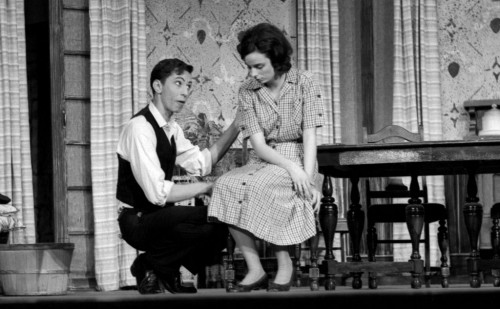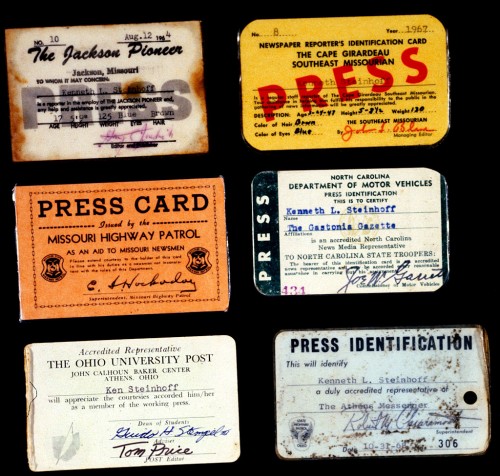 After working for papers in Missouri, Ohio and North Carolina, I got a job offer from the one newspaper I had been admiring for years – The Palm Beach Post. When I moved out of the Midwest into Gastonia, N.C., I became part of the National Press Photographers Association’ Region Six, which encompasses the southeastern part of the country. Because I slept with a police scanner and worked 18-hour days, I did pretty well in photo contests that were normally swept by the Florida papers, which ran photos well and had some of the best color reproduction in the country. They took notice of this nobody at a nothing newspaper who had suddenly popped up on their radar screen.
After working for papers in Missouri, Ohio and North Carolina, I got a job offer from the one newspaper I had been admiring for years – The Palm Beach Post. When I moved out of the Midwest into Gastonia, N.C., I became part of the National Press Photographers Association’ Region Six, which encompasses the southeastern part of the country. Because I slept with a police scanner and worked 18-hour days, I did pretty well in photo contests that were normally swept by the Florida papers, which ran photos well and had some of the best color reproduction in the country. They took notice of this nobody at a nothing newspaper who had suddenly popped up on their radar screen.
I had the chance to meet some of the West Palm Beach staffers at a couple of conferences, and we hit it off. The next thing I knew I was offered a job without even submitting a portfolio. I figured I’d be in a better negotiating position if I actually met the boss in person, so Wife Lila and I made arrangements to drive down to West Palm Beach for the interview. They put us up in a beachfront hotel – nothing fancy, but it WAS on the beach.
I finally agreed to take the job at the same money I was making in North Carolina – $180 a week. (I found out a couple of years later when I became director of photography that was the highest salary on the staff at the time.) Nobody bothered to mention that Florida ain’t as cheap as North Carolina. Our rent in Gastonia was 90 bucks a month. In West Palm Beach, it was double that.
They didn’t exactly pay moving expenses, either: they put you on the payroll two weeks before you actually started working to help defray your costs. As it turned out, my official hire date was 12/31/72, which turned out in my favor. By being hired in 1972, I was elegible for two-week vacation in ’73. If I had been hired one day later, I wouldn’t have had a paid vacation until 1974.
(You can click on any photo to make it larger if you want to see my waistline expand and my hair recede.)
“You have to fill out an application”
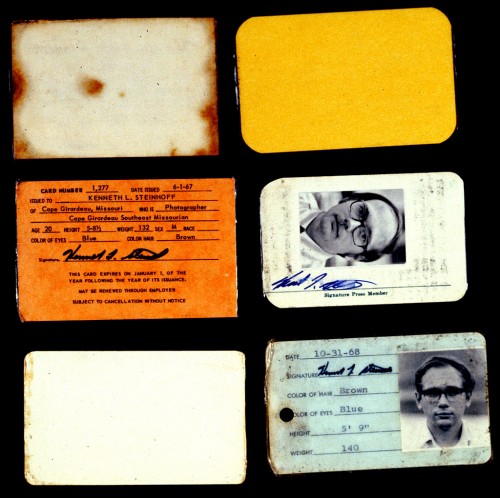 The boss caught me when I was coming back from an assignment. “I need you to fill out an employment application,” he said.
The boss caught me when I was coming back from an assignment. “I need you to fill out an employment application,” he said.
“You’re kidding me, right? I’ve been working here for two weeks.” Yep, I had to fill it out.
Still not sure he wasn’t pulling my leg, I sat down and worked my way through the four-page application where I filled in such answers as
- Type of position – Photographer
- Married or single – Married
- Father’s occupation (why they needed to know that, I can’t fathom) – general contractor
- Are you available to work nights, weekends or any other hours requested – yes
- Do you use a typewriter – Yes If so, how fast – Adequate
- Three persons not related to you to whom reference can be made to your character, habits and ability – the editor and publisher at The Gastonia Gazette and John Blue of The Southeast Missourian.
- (I left blank the miscellaneous references that might include my minister.)
- Selective Service Classification – 4F (Thank you, Draft Lottery)
Then, finally, to paraphrase Arlo Guthrie in Alice’s Restaurant, “I turned over the piece of paper, and there, there on the other side, in the middle of the other side, away from everything else on the other side, in parentheses, capital letters, quotated, read the following words: “State experience, talents or training which cause you to feel you are qualified for work sought:”
I typed, “i’m a damn good photographer” and handed the application back to my boss, who, I assumed, would stuff it somewhere in a desk drawer to be forgotten.
There really IS a permanent record
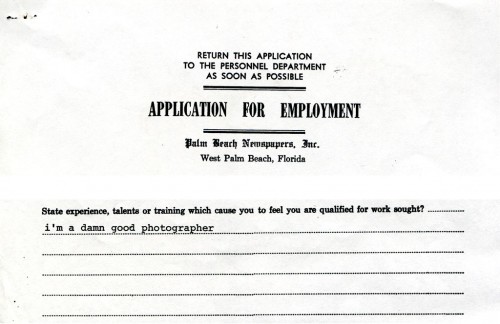 One day I was helping a friend in HR with a computer problem when I asked her if I could see my employee file. “You can’t add anything, change anything or remove anything,” she warned.
One day I was helping a friend in HR with a computer problem when I asked her if I could see my employee file. “You can’t add anything, change anything or remove anything,” she warned.
“That’s OK. I just want to see if something is in there.” Yes, it was. My original job application was there, carefully cradled between two sheets of manila folder. She turned her back while I made a copy of it.
So, why was 2012 going to be a big deal?
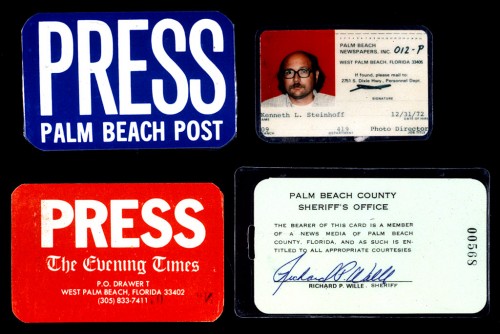 After turning in my employment application, I had to listen to an orientation speech by a nice woman in Personnel (later buzzworded to Human Relations). She explained that I’d be vested in the pension plan after 10 years and she started to explain how this was going to be important to me in 2012, the year I could retire. I held up my hand and said, “Lady, I’ve never lasted at any newspaper longer than three years. I’m NEVER going to see 2012.”
After turning in my employment application, I had to listen to an orientation speech by a nice woman in Personnel (later buzzworded to Human Relations). She explained that I’d be vested in the pension plan after 10 years and she started to explain how this was going to be important to me in 2012, the year I could retire. I held up my hand and said, “Lady, I’ve never lasted at any newspaper longer than three years. I’m NEVER going to see 2012.”
As the years went by, I kept making more and more references to 2012. “I’ll sign a contract with you in 2013,” I’d tell a vendor. When The Voice Report, a trade magazine, asked me on a bio form, for a “Prediction on the Future of Telecom & Telecom Managers,” I responded, “Please, please, please have a future that lasts until at least 2012 or the first Saturday when I can guess more than three lousy numbers right on the Florida Lottery.”
When rumors of buyouts started floating at the paper, my boss told me that I shouldn’t worry: I was “essential” personnel and wouldn’t be offered a buyout. “I WANT the offer,” I told him. “I’m looking to retire as soon as I hit 62; I’ve been here 35 years; I’m making too much money because of my longevity, and I’ve been grooming my replacement for the past two years. Please, get me the deal.” He worked some magic, and I ended up with a year’s pay (and a huge tax hit), a pension, a health package and early retirement.
So, instead of being a Big Deal, New Year’s Day 2012, is going to be just another wonderful day of retirement.
 When I was stumbling around trying to find out how to get to the old M.E. Leming Lumber Company, I took a chance on going down LaCruz Street in what used to be Smelterville. I sort of didn’t see a sign that said don’t go here and popped out next to Consolidated Grain and Barge, now labeled CGB. I didn’t realize CGB was such a big deal until I checked out their webpage.
When I was stumbling around trying to find out how to get to the old M.E. Leming Lumber Company, I took a chance on going down LaCruz Street in what used to be Smelterville. I sort of didn’t see a sign that said don’t go here and popped out next to Consolidated Grain and Barge, now labeled CGB. I didn’t realize CGB was such a big deal until I checked out their webpage. CGB is at the end of LaCruz Street, the street that runs from Sprigg, at the bottom, to the river. Look for the two storage bins to the right side of the light-colored lot. The facility just to the left of where the barge is passing is Cape’s Sewage Treatment Plant. Cape LaCroix Creek empties into the Mississippi at the right.
CGB is at the end of LaCruz Street, the street that runs from Sprigg, at the bottom, to the river. Look for the two storage bins to the right side of the light-colored lot. The facility just to the left of where the barge is passing is Cape’s Sewage Treatment Plant. Cape LaCroix Creek empties into the Mississippi at the right.







